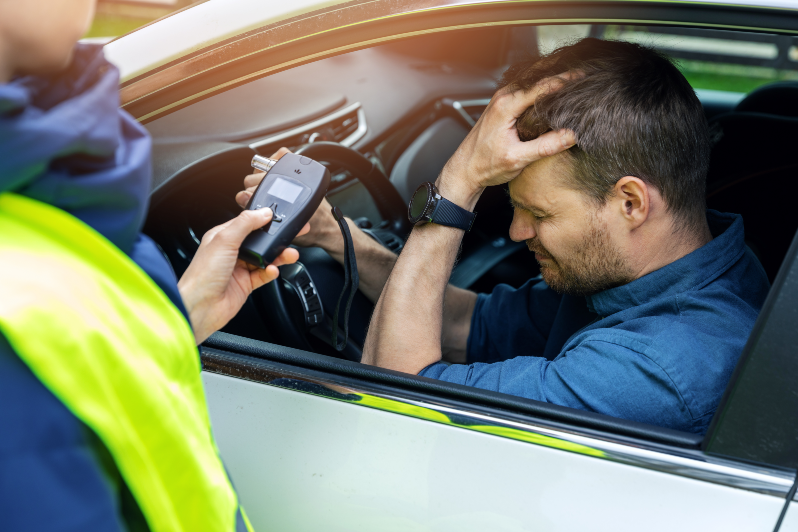

When someone consumes an alcoholic beverage, their blood alcohol concentration (BAC) quickly rises and continues to rise until it peaks, anywhere from thirty minutes to two hours later.
Rising BAC is one of the possible challenges defense attorneys may use to fight driving under the influence (DUI) charges in Louisiana. Attorneys base this defense on the notion that a person’s BAC levels continue to rise even after someone stops drinking. Essentially, they’re arguing that the driver was under the legal BAC limit when officers pulled them over, but by the time a chemical test was performed, their level crept over the legal limit.
Remember that the BAC level in Louisiana is .08% for non-commercial drivers. For commercial drivers, it’s .04%, and the BAC level for those under 21 is .02%. If you’re facing DUI charges, reach out to a Louisiana DUI defense attorney.
How the Human Body Absorbs Alcohol
The stomach absorbs approximately 20% of alcohol, while the small intestine absorbs the other 80%. A minimal amount is exerted in sweat, saliva, urine, and breath, which is how breathalyzer and urine tests detect the amount of alcohol in someone’s body.
From the digestive system, the alcohol goes into the bloodstream, and the blood then carries it to the brain and other primary organs. Eventually, the liver breaks down the alcohol and removes it from the body through urine.
However, livers can only metabolize so much alcohol at a time. Whatever alcohol it can’t break down will remain in the bloodstream until the liver can catch up. This additional alcohol may keep the individual intoxicated for hours, depending on how much they consumed.
Can a Rising BAC Level Lead to a False Charge?
Officers do not always administer chemical tests immediately after pulling someone over. Most times, they will only perform a field sobriety test and administer a BAC test at the police station. DUI chemical tests –– such as the breath test, blood, or urine tests –– are considered valid as long as they are given within three hours after an arrest.
Depending on when your last drink was, there’s a good chance that your BAC was still rising during the test. This means your alcohol level could be much higher than when you were driving, resulting in a false charge. If there’s a chance that a rising BAC was a factor in your DUI arrest, you may have a solid defense for your case.
How Drivers Can Use a Rising BAC as a Legal Defense
A skilled defense attorney can use a rising BAC defense in a DUI case, but it won’t be easy. The defense only works under certain conditions, including:
- Being close to the legal limit: If your BAC level at the time of testing is .16%, double the legal limit, then a rising BAC will not be a valid defense. Even though your BAC does keep rising after you stop drinking, you would have been over the legal limit regardless. This defense best works when your level is in the .08% to .11% range.
- Delayed testing: Rising BAC limits will only work if police wait to test you. For example, if an officer arrests you and keeps you in a jail cell for an hour or two before administering a blood test, your BAC more than likely increased during that period.
- No other factors: If other factors led to an officer pulling you over, such as swerving or slurred speech, then rising BAC levels is a less effective defense.
A rising BAC defense can make a crucial difference in your DUI case. The best way to find out whether it could work is by talking to a competent DUI lawyer.
Seasoned DUI Defense Lawyer That Will Fight for You
If you’re facing DUI charges in Louisiana, you must hire an experienced criminal defense lawyer who will be on your side and advocate on your behalf. For more than 25 years, Attorney Eric Johnson of John D. & Eric G. Johnson Law Firm has been creating winning defense strategies for all of his clients.
Attorney Johnson will take the time to learn more about your case and determine whether a rising BAC level factored into your charges. Protect your future today by calling (318) 377-1555 or completing a contact form to schedule a free consultation today.
